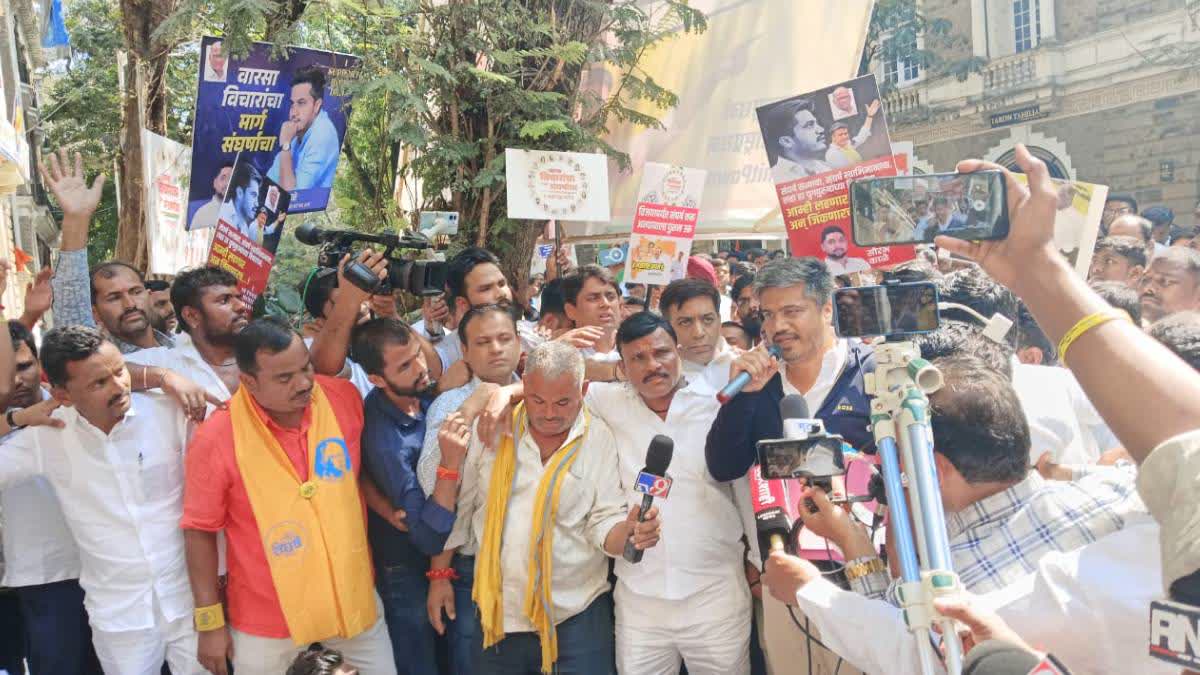Mumbai: Rohit Pawar, NCP MLA and grand nephew of party supremo Sharad Pawar, is currently being interrogated by the Enforcement Directorate (ED) officials in connection with a money laundering case in regard to the alleged Maharashtra State Cooperative Bank scam, official sources said. This is for the second time in the last 10 days that the MLA from Karjat-Jamkhed is being questioned by the agency.
Rohit reached the ED's office at Ballard Estate in south Mumbai this afternoon while a huge crowd of party activists gathered in front of the NCP office located nearby. The party workers have decided not move from the NCP office till Pawar's investigation is completed.
Sharad Pawar's wife Pratibha Pawar is also at the NCP office to show support for Rohit. Sharad Pawar and his daughter MP Supriya Sule are in Delhi for the Union Budget.
Earlier, Pawar was interrogated in connection with the case on January 24. ED had conducted a search operation at Rohit's company, Baramati Agro and some linked firms in Baramati, Aurangabad and Pune on January 5.
Rohit said, "On January 19, the ED issued me a notice. I understand from the media that the closure report has been submitted to the court. We are going request the court so that we also get a copy of the report. When there are no facts in a case, the closure report is submitted to the court," he said.
The NCP MLA further said that the ED officials are doing their job and it is the duty of the citizens to cooperate with them. "I am not against the officials. Since the notice has come, it is my responsibility to respond. I have not done anything wrong in business. First I came into business and then into politics. There are many leaders who came into politics and then started business. Why are some people working to suppress the voice of democracy?" he asked.
Ajit Pawar faction minister Anil Patil had said that the show of strength depicted during Rohit's ED investigation is a political show. Amol Matele, a leader of the Sharad Pawar faction responded saying, "They were fugitives who fled in fear of central agencies, not us".
Read more



